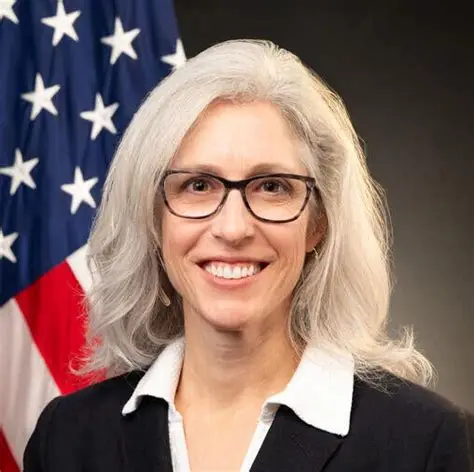The United States’ top public health body has been thrown into turmoil after the Trump administration moved to oust the head of the Centres for Disease Control and Prevention (CDC), Susan Monarez, less than a month after she was sworn into office.
The Department of Health and Human Services (HHS) announced on Wednesday evening that Monarez was no longer serving as CDC director, though it gave no explanation for her removal. “We thank her for her dedicated service to the American people,” read a short, unsigned statement posted to social media.
Monarez’s lawyers, however, disputed the announcement, insisting she had “neither resigned nor received notification” of termination from the White House. In a statement, they accused the administration of targeting her for resisting political interference in public health. “When CDC Director Susan Monarez refused to rubber-stamp unscientific, reckless directives and fire dedicated health experts, she chose protecting the public over serving a political agenda. For that, she has been targeted,” said attorneys Mark Zaid and Abbe David Lowell.
The decision comes amid rising tensions between Monarez and Robert F Kennedy Jr, the health secretary, over vaccine policy. Reports in the Washington Post and New York Times suggested Monarez angered Kennedy by declining to back sweeping changes to immunisation programmes. Earlier in the day, Kennedy welcomed a Food and Drug Administration decision revoking emergency authorisation for Covid-19 vaccines from Pfizer, Moderna and Novavax, despite CDC estimates that the vaccines had saved more than three million American lives.
The fallout has triggered a wave of senior resignations from the CDC. Dr Demetre Daskalakis, director of the National Center for Immunisation and Respiratory Diseases, resigned with a letter denouncing the “weaponising of public health”. Dr Deb Houry, the CDC’s chief medical officer, also stood down, warning that science “should never be censored or subject to political pauses or interpretations”. Dr Daniel Jernigan, who headed the Center for Emerging Zoonotic Infectious Diseases, has also quit.
Monarez, 50, became the agency’s 21st director and the first to require Senate confirmation under a 2023 law. She was appointed acting director in January and confirmed in March after Donald Trump withdrew his first nominee, David Weldon. Sworn in on 31 July, she has become the shortest-serving director in the agency’s 79-year history.
The upheaval has prompted alarm across the public health community. Dr Craig Spencer, an emergency medicine specialist at Brown University, described the situation as an “absolute shitshow” that had left the country unprepared. Dr Ashish Jha, who served as the Biden administration’s coronavirus response coordinator, called it a “total implosion” caused by Kennedy’s leadership.
Dr Jonathan Reiner, a cardiologist at George Washington University, said Kennedy was becoming a “liability for the White House” as confidence in the CDC’s leadership collapses.
The crisis leaves the future of the US’s most prominent public health agency in question at a moment when vaccine policy and trust in science remain fiercely contested political battlegrounds.



